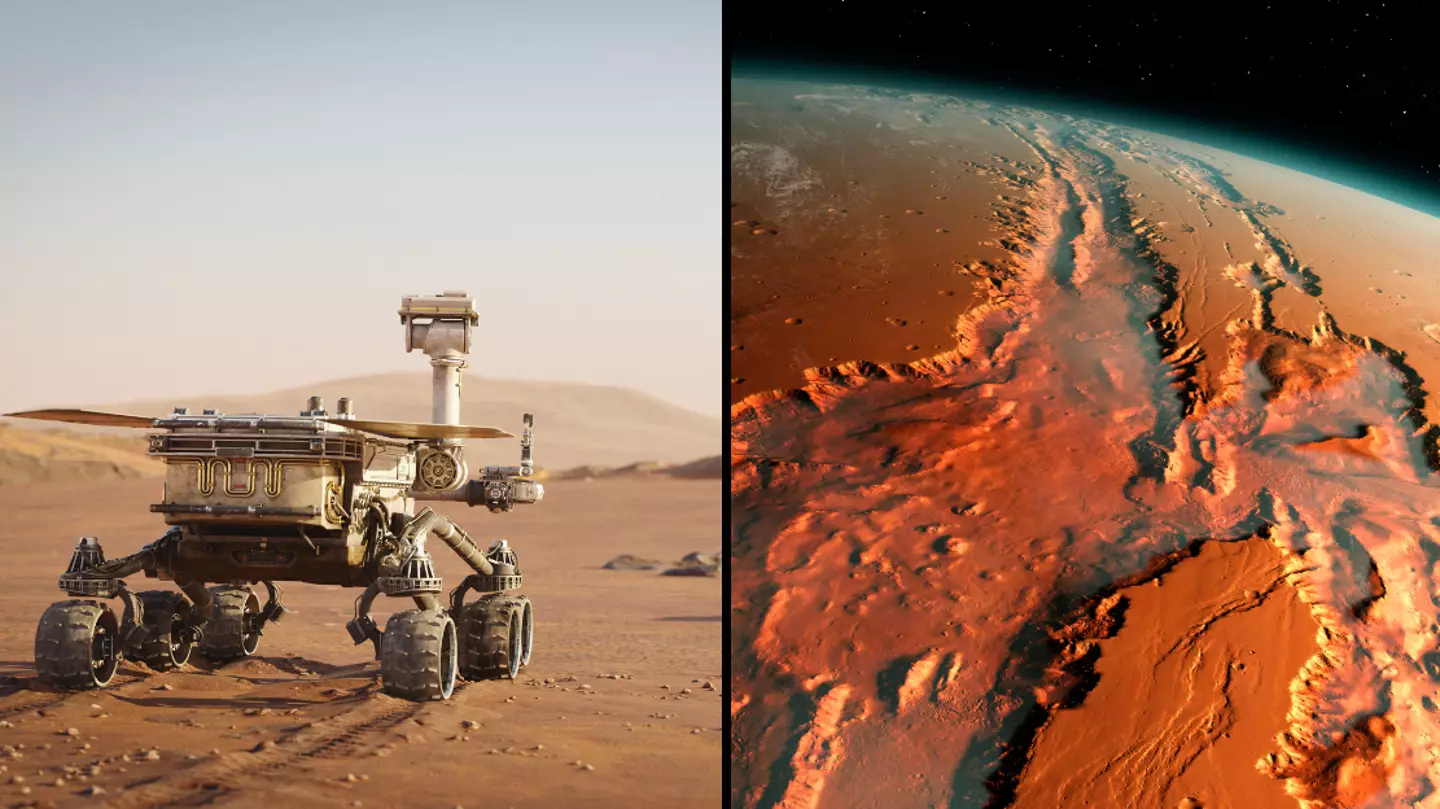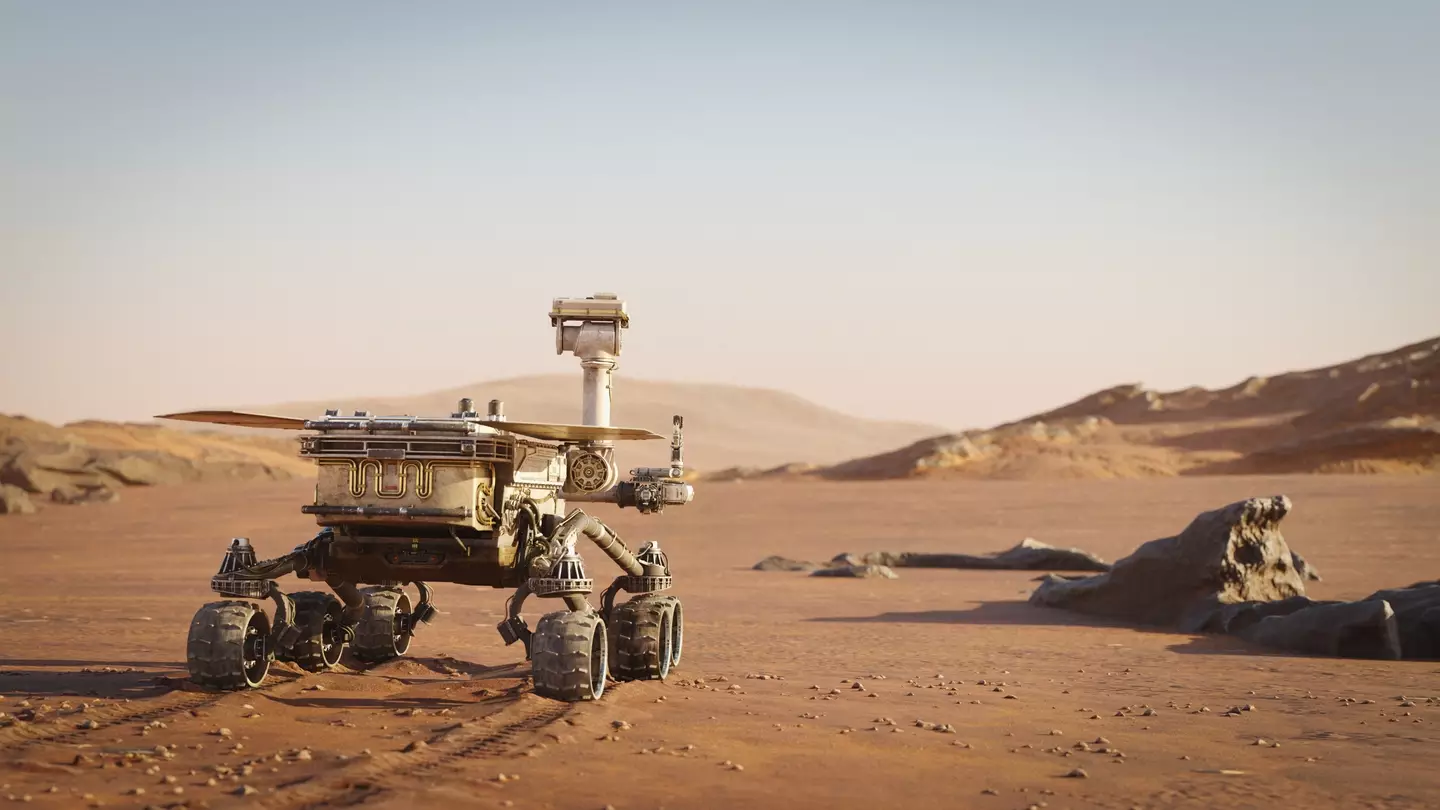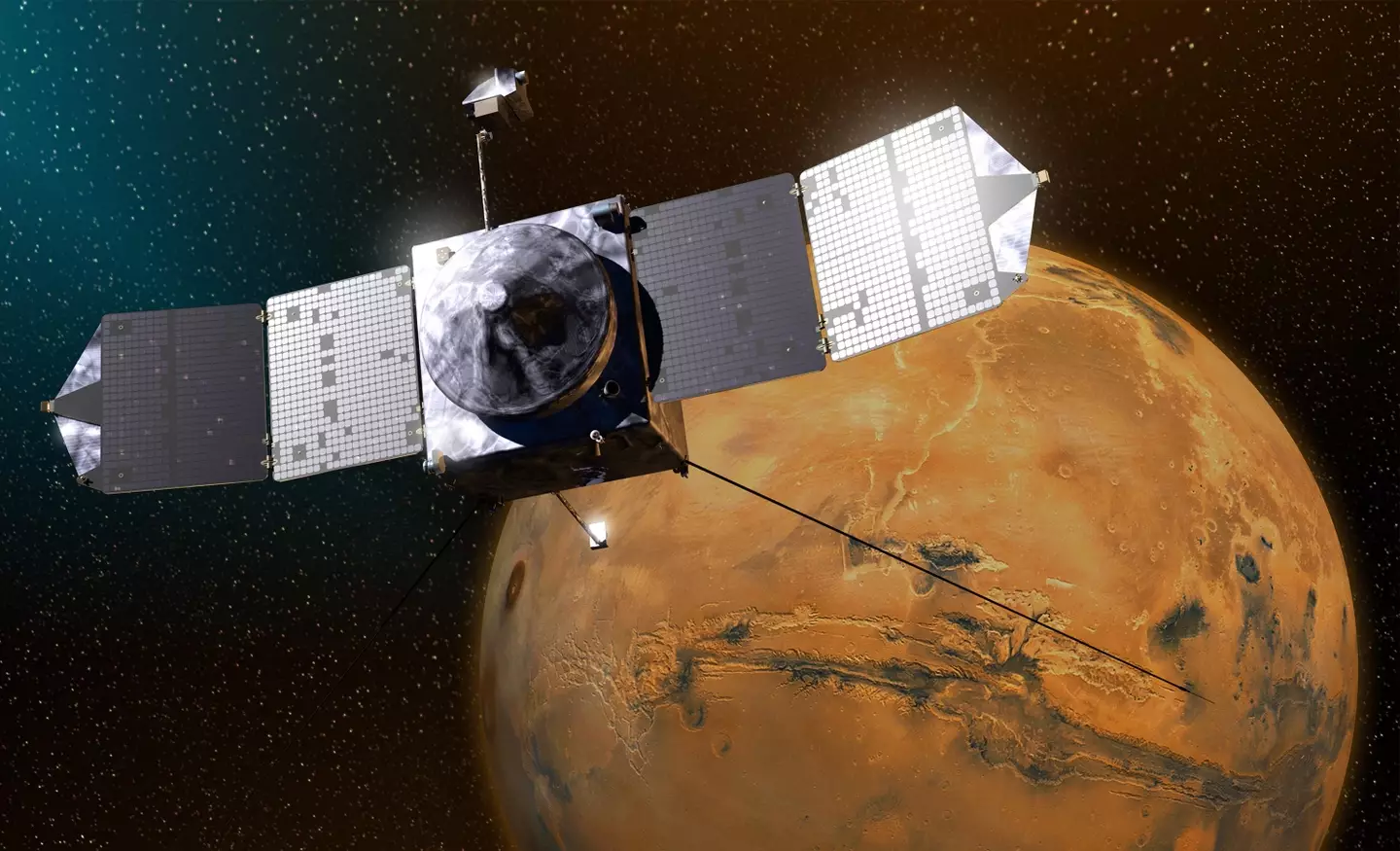
A landmark deal has been signed that means its all systems go when it comes to, hopefully, finding ancient extraterrestrial life on Mars.
Humanity has been obsessed with findings signs of alien life for decades so that we can finally know the answer to whether we're alone in the universe or not.
Earth's next door neighbour has always the fascination in pop culture, with even the iconic David Bowie naming songs after the otherworldly phenomenon.
Well, it looks like it is finally full steam ahead when it comes to looking for signs of life on Mars after a new agreement was signed by NASA and the European Space Agency (ESA).
In four years time, the ESA will launch its ExoMars Rosalind Franklin rover, which will send the latest Mars rover to the Red Planet in search for ancient alien life.
Advert
It is just the latest development in a resurgence placed upon space exploration, with a separate $5 billion NASA probe heading to a nearby Milky Way moon in the search for alien life.
There's also massive plans to establish a first of its kind base on the Moon, with NASA then setting its sights firmly on a first ever manned trip to Mars.

But before astronauts land on the Red Planet, it is full steam ahead with the ExoMars Rosalind Franklin rover.
The agreement between NASA and the ESA, signed on Thursday (16 Mars), means that the US space agency will now put together a commercial launch provider for the rover.
Advert
It'll also provide heater units and elements of the propulsion system needed to land on Mars.
A new instrument on the rover will be the first drill to a depth of up to 6.5 feet (two meters) deep below the surface to collect ice samples that have been protected from surface radiation and extreme temperatures.

Nicola Fox, associate administrator, Science Mission Directorate at NASA Headquarters in Washington, said: "The Rosalind Franklin rover’s unique drilling capabilities and onboard samples laboratory have outstanding scientific value for humanity’s search for evidence of past life on Mars.
"NASA supports the Rosalind Franklin mission to continue the strong partnership between the United States and Europe to explore the unknown in our solar system and beyond."
Advert

The rover will also be collecting samples that, it is hoped will showcase the building blocks of life in the soil samples.
This has been made possible through NASA teaming up with the German Aerospace Center (DLR) and the French space agency CNES (Centre National d’Etudes Spatiales).
The ExoMars Rosalind Franklin rover will touch down on Mars in 2029.
The future of humanity's exploration of Mars could also decided during the current period of volatility on the surface of the Sun, which are set to rock the Red Planet once again.
Topics: Space, Technology, Science, NASA, US News, World News, Weird, Aliens